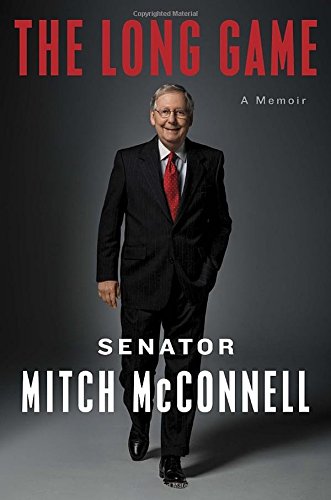About this item
In October 1984, a hard-charging Kentucky politician waited excitedly for President Ronald Reagan to arrive at a presidential rally in Louisville. In the midst of a tough Senate campaign against an incumbent Democrat, the young Republican hoped Reagan's endorsement would give a much-needed boost to his insurgent campaign. He even had a camera crew ready to capture the president's words for a TV commercial he planned to air during the campaign's final stretch. Alas, when Reagan finally stepped to the microphone, he smiled for the crowd and declared: "I'm happy to be here with my good friend, Mitch O'Donnell." That was hardly Mitch McConnell's first setback, and far from his last. But as he learned when running his very first campaign for student body president in high school, you don't have to be the most popular, the most athletic, or even the luckiest kid to win. You just need to run the best campaign. So he swallowed hard, put his head down, and kept going. Four weeks later, in the biggest upset of the year, his dream of being a US senator came true - by a margin of about one vote per precinct. By persevering, he'd be the only Republican in the country to beat an incumbent Democratic US senator. McConnell learned patience and fortitude during his post-World War II youth in Alabama. His mother helped him beat polio by leading him through long, aching exercises every day for two years. His father taught him the importance of standing up to bullies, even if it meant taking the occasional punch. It turned out to be the perfect childhood for a future Senate majority leader. "In the line of work I would choose, compromise is key, but I'd come to find that certain times required me to invoke the fighting spirit both of my parents instilled in me." The Long Game is the candid, behind-the-scenes memoir of a man famous for his discretion. For more than three decades, McConnell has worked steadily to advance conservative values, including limited government, individual liberty, fiscal prudence, and a strong national defense. But he has always cared much more about moving the ball forward than about who gets the credit.Even in recent years, when some of his colleagues seem obsessed with maintaining and cultivating their images in a twenty-four-hour news cycle, McConnell focuses on how today's controversies will affect the country in a year, or two, or ten. Now McConnell reveals what he really thinks about the rivalry between the Senate and the House; the players and the stakes involved when a group of political opportunists tried to hijack the Tea Party movement; and key figures such as Barack Obama, Joe Biden, and Harry Reid. He tells the inside story of the battle against Obamacare and other fights to protect the US Constitution against further encroachment by an out-of-control White House that's stuck in a permanent campaign. He explains the real causes of the chronic gridlock that has so many voters enraged, his ongoing efforts to restore the US Senate's indispensable dual role as a brake on excess and a tool for national consensus, and what ordinary citizens have a right to expect from Washington. In today's atmosphere of impatience and instant gratification, McConnell still believes the Founders knew best when they instituted a government with checks and balances. As he writes, "In the end, the goal isn't a perfectly running congressional machine or a party without blemish or inner turmoil. The goal is to allow the country to work out its differences freely and energetically, confident that the institutions the Founders left us are capable of accommodating the disputes and disagreements that arise in a nation as big and diverse and open as ours."


